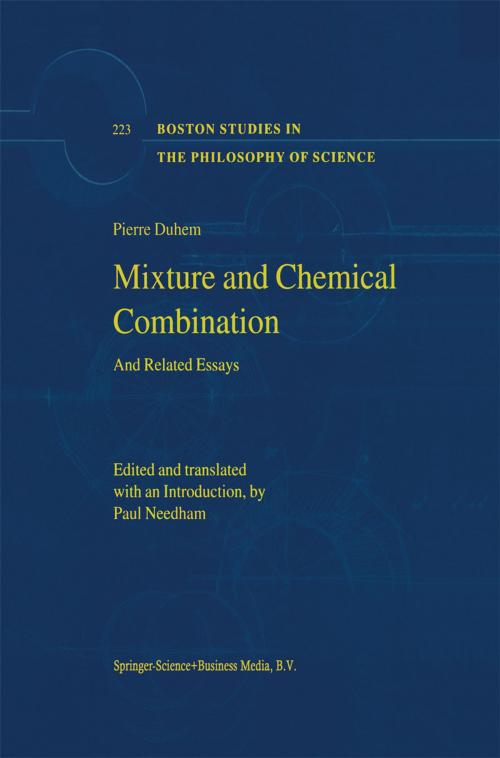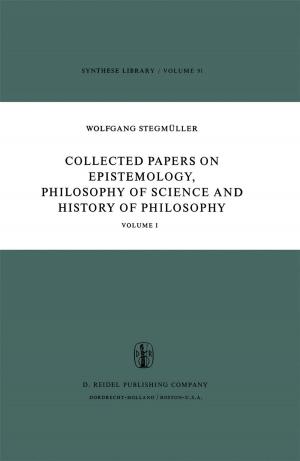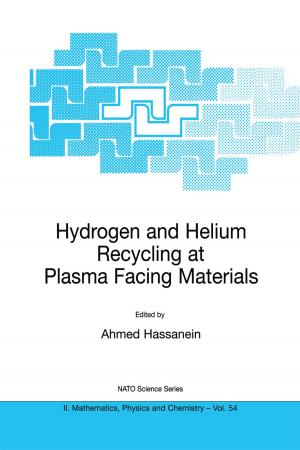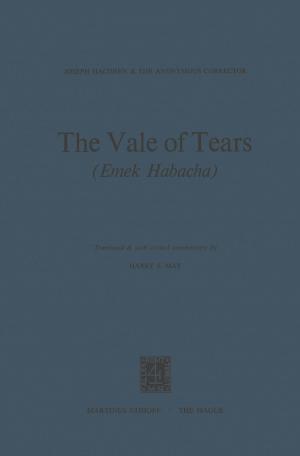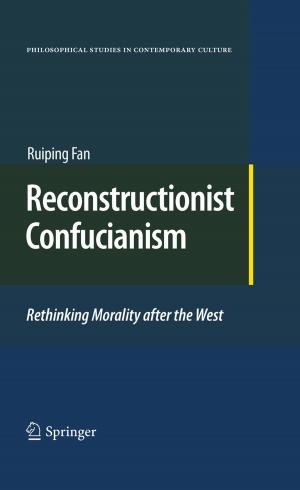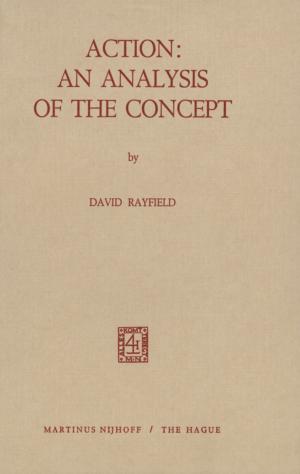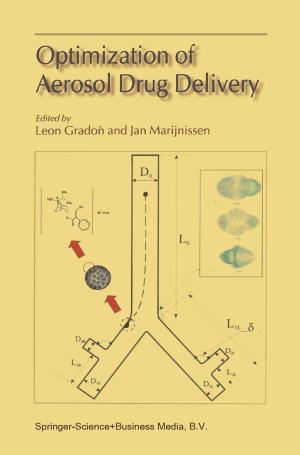Mixture and Chemical Combination
And Related Essays
Nonfiction, Science & Nature, Science, Chemistry, General Chemistry, Other Sciences, Philosophy & Social Aspects| Author: | Pierre Duhem | ISBN: | 9789401722926 |
| Publisher: | Springer Netherlands | Publication: | April 17, 2013 |
| Imprint: | Springer | Language: | English |
| Author: | Pierre Duhem |
| ISBN: | 9789401722926 |
| Publisher: | Springer Netherlands |
| Publication: | April 17, 2013 |
| Imprint: | Springer |
| Language: | English |
Much of Duhem's work as a professional scientist was closely related to the newly emerging discipline of physical chemistry. The book and associated papers translated here revolve around his concomitant philosophical and historical interests in chemistry-topics largely uncovered by Duhem's writings hitherto available in English. He understood contemporary concerns of chemists to be a development of the ancient dispute over the nature of mixture. Having developed his historical account from distinctions drawn from the atomists and Aristotelians of antiquity, he places his own views of chemical combination squarely within the Aristotelian tradition. Apart from illuminating Duhem's own work, it is of interest to see how the ancient dispute can be related to modern science by someone competent to make such comparisons. The book is lucid and logically stringent without assuming any particular mathematical prerequisites, and provides a masterly statement of an important line of nineteenth century thought which is of interest in its own right as well as providing insight into Duhem's broader philosophical views.
Much of Duhem's work as a professional scientist was closely related to the newly emerging discipline of physical chemistry. The book and associated papers translated here revolve around his concomitant philosophical and historical interests in chemistry-topics largely uncovered by Duhem's writings hitherto available in English. He understood contemporary concerns of chemists to be a development of the ancient dispute over the nature of mixture. Having developed his historical account from distinctions drawn from the atomists and Aristotelians of antiquity, he places his own views of chemical combination squarely within the Aristotelian tradition. Apart from illuminating Duhem's own work, it is of interest to see how the ancient dispute can be related to modern science by someone competent to make such comparisons. The book is lucid and logically stringent without assuming any particular mathematical prerequisites, and provides a masterly statement of an important line of nineteenth century thought which is of interest in its own right as well as providing insight into Duhem's broader philosophical views.
